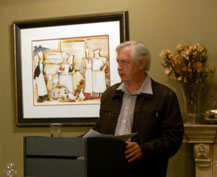Latest News Archive
Please select Category, Year, and then Month to display items
21 April 2021
|
Story Eugene Seegers
|
Photo Supplied
 Adelia Chauque graduated with distinction during the April Virtual Graduations hosted by the UFS.
Adelia Chauque graduated with distinction during the April Virtual Graduations hosted by the UFS.
On 20 April 2021, 693
South Campus students graduated during a
virtual ceremony, with 213 of them achieving distinctions. One of these is
Adelia Chauque, the newly elected South Campus SRC member for Policy and Transformation. During her journey as a student, Adelia says that she had numerous obstacles to overcome. For instance, she mentions that her “biggest challenge was completing my tasks with an unstable data connection during the pandemic”. Despite this impediment, Adelia managed to excel in her studies and obtained her qualification with distinction.
Adelia says her family was her biggest support system. “Due to the network problems that I faced my family had to drive me around until we found a stable connection that enabled me to write my tests.” Other support came from the university itself. “I received a lot of support from the academic adviser, Mr Chwaro Shuping,” she says. “Although he couldn't arrange for me to return to campus, he called regularly to ensure that I was still academically active.”
After overcoming these hurdles, Adelia is continuing her academic journey. “I am enthusiastic and eager to learn or to better myself. Due to that, I am furthering my studies by enrolling for a second degree programme in
Administration majoring in Industrial Psychology. I am very ambitious, in the sense that I strive for perfection and consistency with an organised and maintainable future, therefore being part of the SRC enables me to assist students and myself with a secured and comfortable learning environment to achieve our goals at the institution.”
Adelia balances her responsibilities in the SRC portfolio of Policy and Transformation on the South Campus by having a schedule planned that ensures she does not fall behind. She concludes, “During the morning, I attend my prescribed lectures to ensure that I will continue to slay academically. Then I am visible in the SRC office from 12:00 to 16:30. After hours, I contribute my time to study, but I remain available to students who prefer texting.” The university is keen to see the heights to which Adelia will attain in the coming years.
“I am enthusiastic and eager
to learn or to better myself.”
Adelia Chauque, South Campus SRC:
Policy and Transformation.
Afrikaans place names were not only given by Afrikaner people, says professor.
2012-09-25
 |
Prof. Peter Raper delivering his lecture on South African place names.
25 September 2012 |
Prof. Peter Raper, honorary professor at the Department of Linguistics and Language Practice, delivered a public lecture in Clarens earlier this month. The theme of the lecture was “From Stone Age to GPS: The fourth edition of the South African Place Names Dictionary”.
Prof. Raper shared the historical development of the project as well as the challenges and other interesting observations associated with the topic. He elaborated on the dramatic change in the focus of his research on place names in South Africa.
It was previously assumed that all of the Afrikaans place names were given by the Afrikaner people and that changing these place names was consistent with the mandate of the South African Geographical Names Council (SAGNC) to transform place names. Prof. Raper said more in-depth research revealed that a significant number of place names are actually translations of original San names – into Afrikaans, Khoi and the Bantu languages. He told the audience that given the constitutional stipulation that no cultural group’s heritage may be removed, this discovery calls into the question the modus operandi of the SAGNC.
Prof. Raper’s lecture was part of the conference programme of the Third International MIDP IV Symposium that took place on the Qwaqwa campus. The MIDP (Multilingual Information Development Programme) is a project sponsored by the Province of Antwerp. The theme for this year’s symposium was “Multilingualism for Empowerment” and was presented in collaboration with the University of Antwerp.